Celtic: Dignified Deila left to face the music alone
- Published
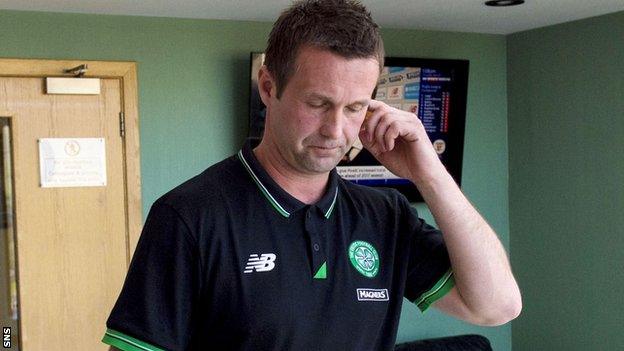
Deila faced the media for the first time since announcing that he is to leave Celtic in the summer
The announcement of his departure left Ronny Deila with nowhere to hide.
Addressing the media for the first time since it was revealed that he would be leaving in the summer, the Celtic manager was bluntly honest.
"More people here today..." he remarked dryly as he walked into the press room at the club's Lennoxtown training ground. On his arrival almost two years ago, he was flanked by the chief executive Peter Lawwell and other senior staff at Celtic Park, but it was fitting in a sense that he sat alone in front of the media.
Deila was adamant that the decision to leave was his, that he took it because he saw that he was failing in his tasks as manager, and that the responsibility was his. Managerial departures can take many forms, but this was measured, as honest as might be expected, and admirable for it.
There might have been an element of pragmatism in assuming sole responsibility for Celtic's current state. Even so, Deila's willingness to accept blame was to be admired.
"I've been thinking of this for a little while, because I haven't felt the team has been getting the results it should have, and most importantly the performances or the improvement," Deila said.
"At the start when I came into this job, I talked about improvement in the team, I talked about playing attractive football and in the last six months we haven't had that improvement.
Media conference: Ronny Deila
"When you don't get improvement, it kills me inside. I lose energy over that. That's why you are a teacher, you are a manager, because you want to improve individuals and the team."
Even if Celtic had defeated Rangers in the Scottish Cup semi-final penalty shoot-out last Sunday, Deila insisted that the performance was too bereft to have changed his mindset.
The loss to their Old Firm rivals was unbearable to Celtic fans, though, and it brought matters to a head.
When Deila was appointed, it was on the basis that he would fit seamlessly into the club's football philosophy, that he would develop players' potential, improve fitness while the team played at a high-tempo, attacking aggressively.
Instead, this season the team has regressed, leaving Deila exposed and vulnerable. A qualified teacher, with a modest playing career and a title success with Stromsgodset that was considered remarkable in Norway but would have carried little impact on the British game, Deila had an opportunity to impose himself.
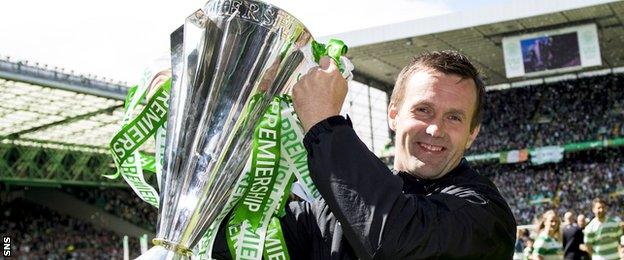
Deila led Celtic to a Premiership and League Cup double in his debut season
Instead, he ended up having to admit to falling short.
"I'm the first one to put up my hand and say I have the responsibility, and that's why I'm leaving," he said.
"I know there is a lot of speculation. One, I signed the players. Don't think about that. There's not one player come in that door that I didn't say yes to.
"Two, I knew what I went into when I took the job. This club wanted to be [run] in a positive way and have a positive economy. I'm not a bitter man. I felt I was given a chance, and I felt lately that we haven't had the development that we wanted in the team.
"The players have been unbelievably good attitude-wise. I don't have any problems with the players, I can look anybody in the eyes. It's easy for a manager to say, this player's bad, this player's bad, but the responsibility is the manager's, wherever you are.
"Players here are good, and if you don't get the best out of them then you have to look yourself in the mirror. I've done that. Some players have had a lot of development under me and are much better, some haven't developed. That can be their fault, that can be my fault. But it's my responsibility."
Media conference: Leigh Griffiths
He admitted to sadness having made the decision, but also the certainty that he would take the opportunity to move to Celtic "100 times again". It was clear, too, that he will leave with an emotional attachment to the club.
Perhaps, also, there will be a sense of relief. In remarking that the "pressure to get into the next Champions League will be unbelievable and that will be tough for the whole club", he offered an insight into the challenge his successor will face.
"You can never, ever make yourself ready to be Celtic manager," he said. "It's something you have to learn. The intensity here is very tough, but I've coped with that, it's been no problem for me.
"The thing that is different is also to have the freedom to be a normal person, it's quite different from what I'm used to in Norway. That's been the negative about it, but handling [the football media] has not been a problem.
"Whatever people may say, I have given everything and I will always have my head high and be very motivated to keep on going in this crazy football world. I have learned even more now and I'm looking forward to the future."
- Published21 April 2016
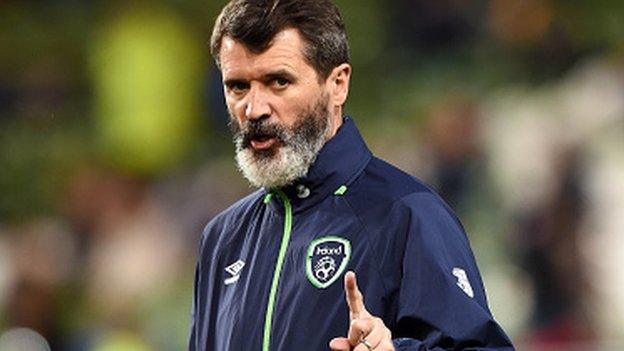
- Published21 April 2016
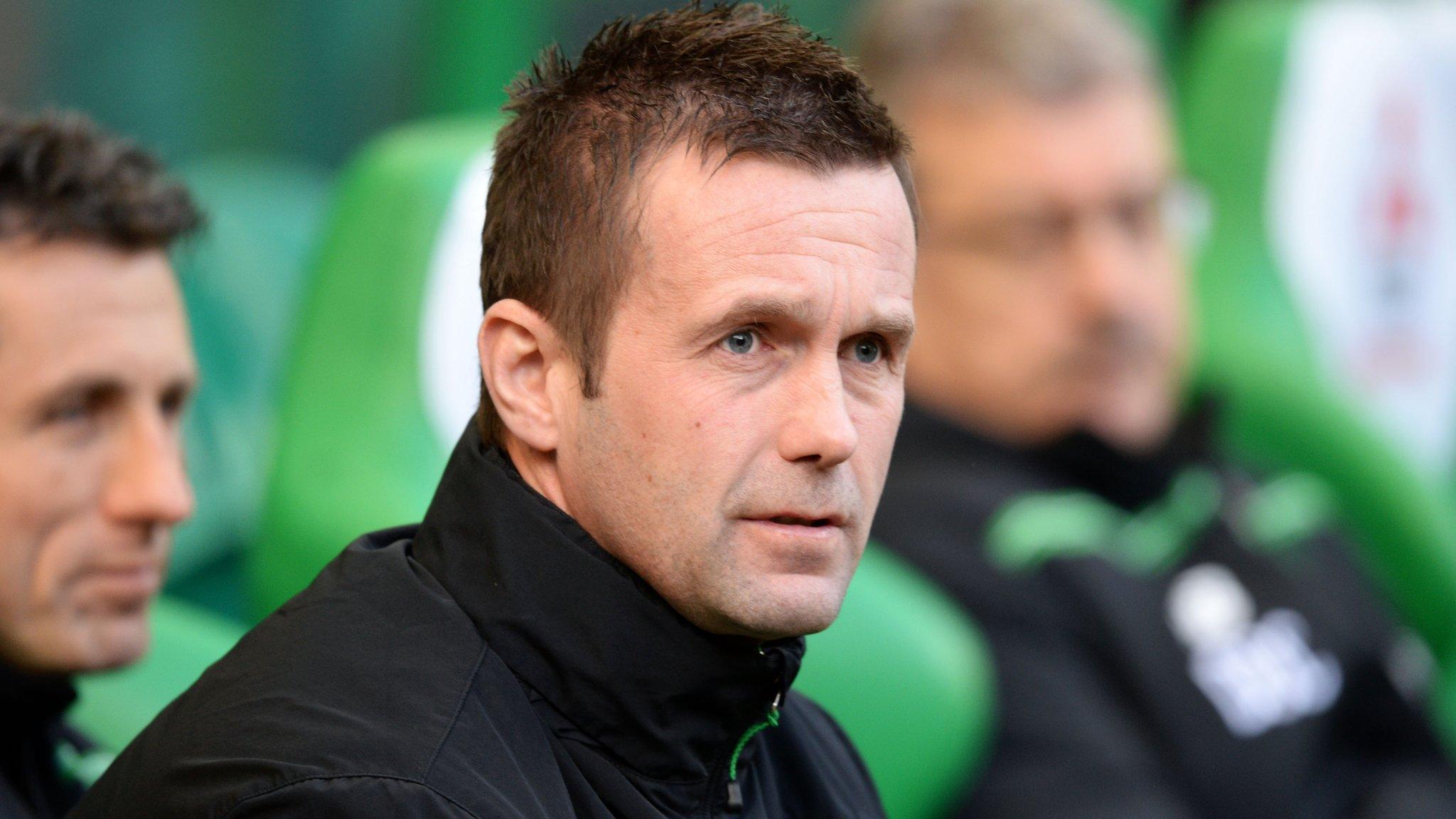
- Published21 April 2016
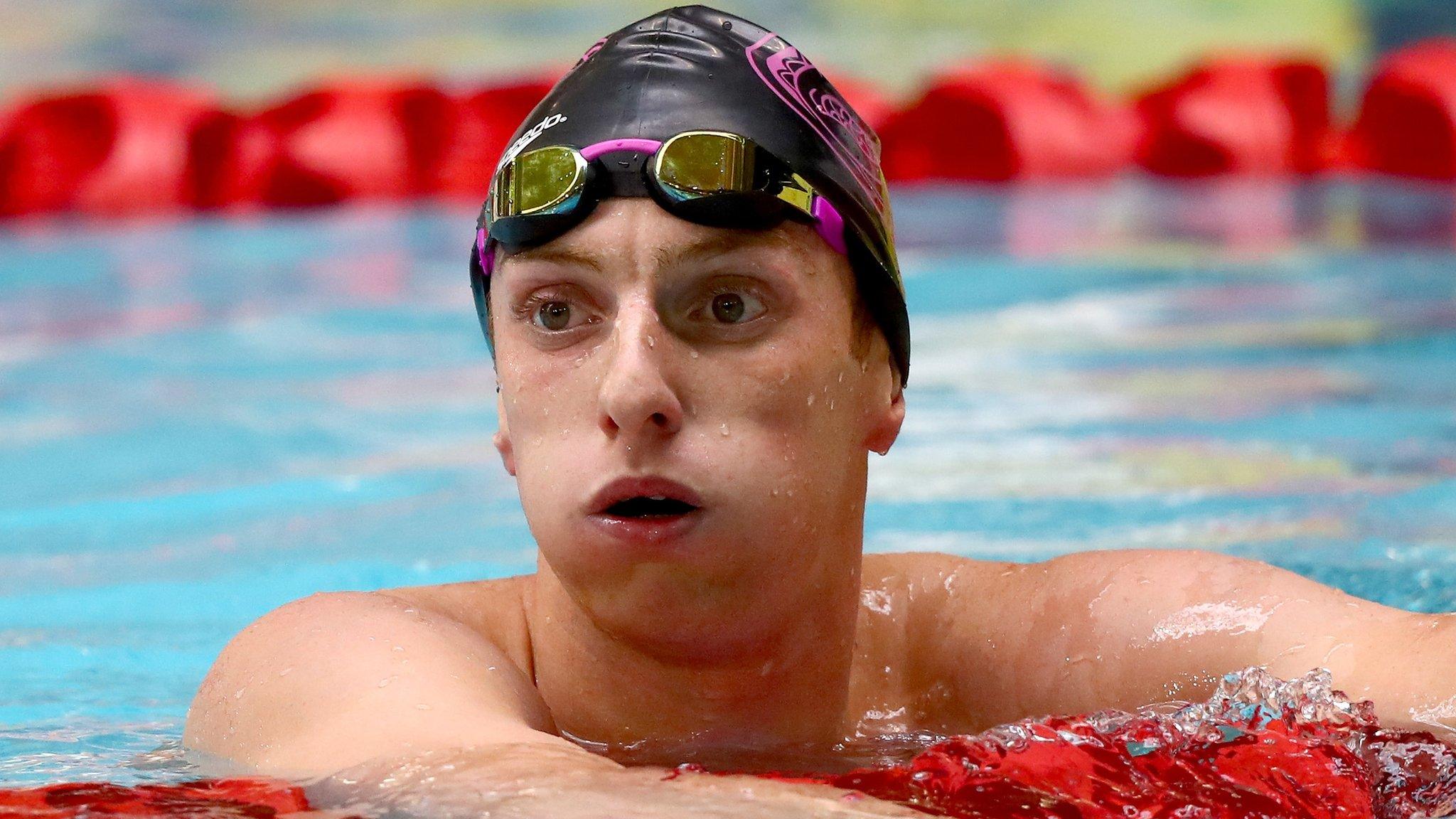
- Published20 June 2016

- Published7 June 2019
